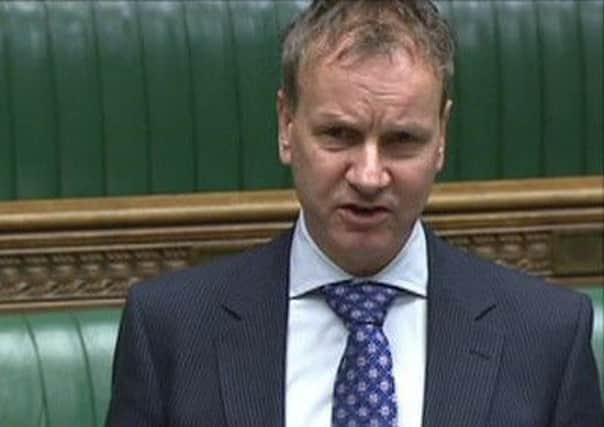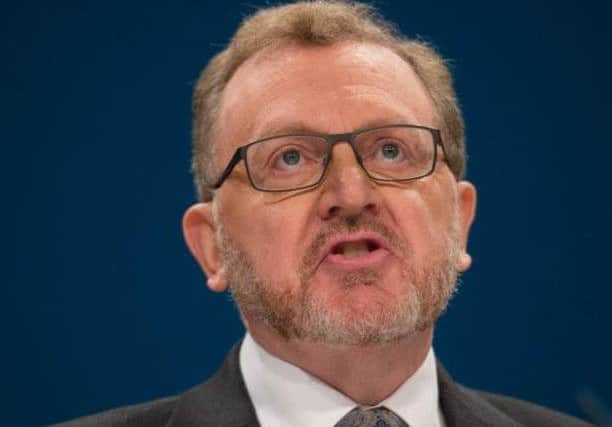No role for Holyrood on Westminster's migration committee, MPs told


Immigration Minister Caroline Nokes said while the Home Office is represented on the Migration Advisory Committee (MAC), there would be a difficulty in giving the Scottish Government a similar role.
When pressed on the issue by the SNP’s Pete Wishart, chair of the Scottish Affairs Committee at the House of Commons, she stressed that “immigration is a reserved matter”.
Advertisement
Hide AdAdvertisement
Hide AdMs Nokes said: “The MAC takes evidence and information from a wide range of organisations, bodies, individuals.


“I do not think there is any greater case to put a Scottish Government official on it than one from the Welsh Assembly or indeed any county council who wanted to come forward pointing out there was a specific shortage in their area.”
During the same meeting Mr Wishart accused Scottish Secretary David Mundell of using “bizarre” and unhelpful language when the Tory MP made clear he did “not want to see Scotland in a separatist manner”.
Mr Mundell argued that while Scotland had a range of demographic and population issues, different parts of the UK had similar problems.


The Scottish Secretary said: “Scotland has specific issues which need to be dealt with, we’ve talked about demographics, we’ve talked about depopulation, we’ve got a very large seasonal workforce.
“But these issues apply in other parts of the United Kingdom, there are more seasonal workers in Lincolnshire than there are in Scotland.”
Mr Wishart said: “Do you not accept Scotland has a range of demographic and population issues that are different from the United Kingdom as a whole?”
Mr Mundell told him: “We do take a different approach, Mr Wishart, because I don’t want to see Scotland in a separatist manner, that everything in Scotland has to be separate and different if that is not the best way to deal with it.”
Advertisement
Hide AdAdvertisement
Hide AdThe SNP MP responded: “I find that language bizarre and really not useful and helpful at all. What we’re trying to achieve here is an evidence-based inquiry to see what we can do to improve the immigration situation of Scotland. To use language like that isn’t helpful.”
Mr Mundell told him: “I think that we have to deal with issues of depopulation in Scotland, I think we have to deal with issues of an ageing population, I think we have to deal with issues ensuring we have seasonal workers in Scotland.
“But these issues affect other parts of the United Kingdom and therefore the solutions that can be found to those issues can be best found on a United Kingdom-wide basis.”
MPs on the committee questioned Mr Mundell and Ms Nokes after a report from experts at MAC indicated that UK businesses view European migrants as more motivated, flexible and willing to work longer hours than Britons.
MAC chairman Professor Alan Manning said employers in all sectors were “concerned about the prospects of future restrictions on EEA migration” following Brexit.
Scottish Government Europe Minister Alasdair Allan said the MAC report showed that “a substantial majority of employers in Scotland remain concerned around future access to the EEA labour market”.
He added: “The report also recognises that population growth varies across the UK and acknowledges our argument that Scotland has a greater reliance on international migration for future population growth and to support our rural and island communities.
“The evidence is clear that the UK Government’s position on migration does not work for Scotland’s needs, and that is why the Scottish Parliament has recently joined the Scottish Government in calling for new powers to enable a Scotland-specific policy.”
